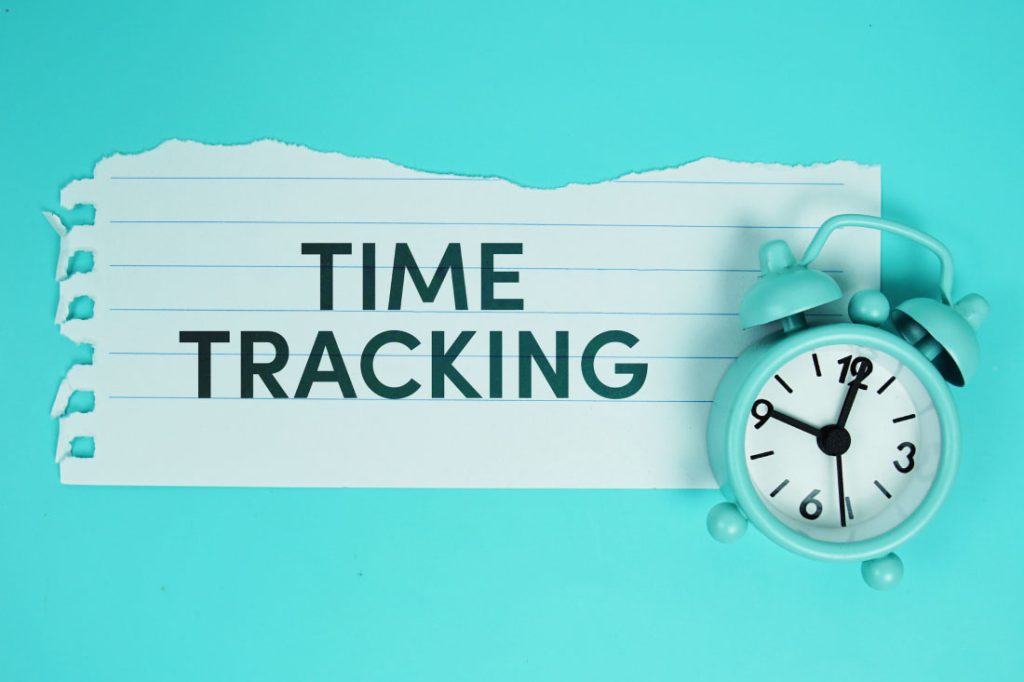Remote teams operate across time zones, devices, and work schedules invisible to traditional oversight. Managers lose the visual confirmation of employees arriving, working, and leaving. Projects bleed budgets without anyone noticing until deadlines pass and invoices shock clients. Meanwhile, accurate data about actual work hours, billable hours, and productivity patterns remains trapped in fragmented memories and incomplete notes. Time tracking software eliminates this visibility gap, transforming distributed teams from accountability black holes into measurable, optimized operations where every hour contributes to documented business value.
The Remote Work Visibility Challenge and Time Tracking Software
Remote work destroyed the office-based assumptions managers relied upon for decades. The shift from physical presence to distributed operations created fundamental challenges in understanding how team members actually spend work hours, manage multiple projects, and deliver results across task management and active projects.
Without accurate time tracking, remote businesses face critical obstacles:
- Revenue Leakage: Billable hours vanish when employees forget to track time spent on client work, particularly problematic for job site visits or mobile device work
- Project Budget Overruns: Project managers lack real-time data about whether projects remain on budget until far too late
- Payroll Complexity: Processing payroll without verified time logs, overtime, and absence management records creates compliance risks
- Performance Blindness: Managers can’t identify high performers or struggling team members without tracked data
- Resource Allocation Guesswork: Team capacity planning relies on assumptions rather than historical patterns from time tracking apps
Moreover, manual time entry systems fail consistently. Employees forget to log time, reconstruct workweeks inaccurately from memory, or simply lack discipline for keeping track manually. This human factor undermines even well-intentioned tracking efforts without automation.
Furthermore, scattered teams use different productivity tools, work hours, and communication platforms. This fragmentation means time entries live in email threads, chat messages, and personal notes rather than centralized systems accessible to project manager roles needing clear insights.
Essential Time Tracking Tools for Distributed Team Management
Effective employee time tracking software addresses remote work’s unique challenges through features specifically designed for distributed operations and team management.
Automated Time Tracking Across Devices:
Modern time tracking tools offer automated time tracking that runs across desktop apps, mobile app, and web app platforms. This cross-device compatibility ensures team members can track time whether working from home offices, coffee shops, or job site locations. Additionally, browser extension options integrate directly into work environments, reducing friction in logging time.
Auto tracker functionality monitors activity automatically, eliminating manual entry burden. Rather than employees remembering to start timers, automatic time tracking begins when work commences. This automated time capture particularly benefits small teams lacking dedicated administrators to monitor compliance.
Furthermore, offline mode capabilities ensure tracking continues even when internet connectivity drops—critical for field workers or employees in areas with unreliable connections. Time entries sync automatically once connectivity restores, maintaining comprehensive records.
Time Tracking Features Supporting Remote Collaboration:
Comprehensive employee time tracking app solutions provide team management features essential for coordinating distributed workers:
- Unlimited users and unlimited projects: Scalable solutions accommodate growing remote teams without cost penalties
- Task management integration: Connect time tracking with project management tools for unified workflows
- Attendance tracking and absence management: Monitor who’s working when across time zones
- GPS location verification: Confirm job site attendance for field service teams
- Facial recognition and kiosk mode: Secure time clock alternatives for shared workspaces
Additionally, integration with popular project management features in platforms like Google Calendar and browser extension tools creates seamless tracking without disrupting established workflows. Employees don’t adopt entirely new systems—instead, time tracker capabilities embed into tools already used daily.

Project Management Features That Connect Time Tracking with Business Outcomes
Time tracking software extends beyond recording hours into comprehensive project management supporting data-driven decisions and project time tracking across complex initiatives.
Project Time Tracking for Budget Control:
Understanding time spent on specific projects protects profitability. When employees categorize time entries by project, client, and task, project managers gain visibility into whether active projects remain on budget or require intervention.
Moreover, job costing analysis reveals true project profitability by comparing billable hours against total time invested. This distinction between billable work and internal overhead helps businesses identify which project types generate best margins and which clients drain resources.
Furthermore, unlimited projects organization allows businesses managing diverse portfolios to maintain granular tracking without limitation. Whether coordinating small teams on few initiatives or large teams across dozens of active projects, robust tracking tools scale accordingly.
Advanced Reporting and Clear Insights:
The transformation from chaos to clarity happens through reporting tools that convert tracked data into actionable intelligence. Basic features include standard reports showing work hours by project, employee, or period. However, advanced reporting capabilities enable custom reports answering specific business questions.
For instance, detailed timesheets might reveal which project phases consistently exceed estimates, indicating need for process improvement. Or analysis might show certain team members consistently outperforming estimates, suggesting mentoring opportunities to share knowledge.
Additionally, export data flexibility ensures reports integrate with other business systems. Whether exporting to accounting software or feeding data into business intelligence platforms, open data access maximizes value from time logs collected.
How Time Tracking Apps Support Small Teams and Growing Businesses
Small teams particularly benefit from time tracking apps balancing powerful capabilities with simplicity and affordability, avoiding enterprise complexity while delivering professional management features.
Free Time Tracking App Options and Scalable Plans:
Many platforms offer free plan options with basic features suitable for small teams just beginning time tracking journeys. These free time tracking app tiers allow businesses to adopt tracking without upfront investment, proving value before committing financially.
As businesses grow, upgrading adds management features like advanced reporting, expense tracking, and enhanced team management capabilities without platform migration. This scalability protects initial training investments while supporting evolving needs.
Moreover, unlimited users policies (even on free plans with some providers) ensure entire teams participate regardless of size, critical for creating accountability culture where everyone tracks time consistently.
User Friendly Interface and Minimal Training:
Adoption depends on ease. Complex time tracking software requiring extensive training faces resistance, while user friendly interface designs encourage consistent usage. Modern timesheet app solutions emphasize simplicity—starting the time tracker requires single click, and automatic time features run in background without constant attention.
Furthermore, mobile device optimization ensures tracking continues regardless of location. Remote workers, traveling employees, or hybrid teams maintain accurate records through smartphones, with data syncing automatically across all devices.
Expense Tracking Integration for Complete Financial Visibility
Comprehensive tracking tools often include expense tracking alongside time management, creating unified systems capturing all costs associated with projects and improving overall job costing accuracy.
Unified Expense and Time Management:
Rather than separate expense reports and timesheets, integrated platforms capture both time and expenses against specific projects. This consolidation simplifies processes when businesses bill clients, ensuring no reimbursable costs go unbilled.
Additionally, this integration improves financial forecasting. When viewing both time tracking data and expense data together, true project profitability becomes clear. Projects consuming excessive work hours or materials relative to billing reveal themselves quickly, enabling corrective action.
Absence Management and Attendance Tracking for Remote Accountability
Remote work eliminates physical presence verification, making systematic absence management and attendance tracking essential for understanding actual availability versus scheduled work hours.
Automated Attendance Tracking:

Modern employee time tracking solutions handle more than project work—they manage attendance tracking automatically. Rather than separate systems, unified platforms track both project time and attendance, creating comprehensive employee time records.
Furthermore, absence management features streamline leave requests and approvals. Digital workflows replace email chains, providing clear audit trails while ensuring everyone understands who’s available when. This transparency prevents scheduling conflicts and missed deadlines due to unknown absences.
Additionally, attendance tracking generates reports useful for payroll processing and compliance documentation. Patterns identifying chronic issues or employees working excessive hours emerge automatically, enabling proactive intervention.
Personal Productivity Insights That Empower Team Members
Time tracking benefits employees directly through personal productivity awareness. When individuals review their own time management apps data, they discover how free time gets consumed by meetings, emails, or distractions versus focused work.
Individual Performance Optimization:
Personal dashboards showing time entries by task, project, and activity type help employees understand productivity patterns. This self-awareness enables optimization—whether blocking time for deep work, declining unnecessary meetings, or better managing interruptions.
Moreover, transparent tracking creates natural accountability. When everyone knows their time logs contribute to team performance metrics and project manager reviews, keeping track of hours becomes habitual rather than afterthought.
Furthermore, this visibility helps employees advocate for themselves during performance reviews. Rather than subjective impressions, concrete tracked data demonstrates contributions, project completion rates, and productivity trends supporting compensation discussions.
Time Entries, Job Costing, and Client Billing Accuracy
For businesses billing clients based on work hours, an accurate time tracker tool functionality directly protects revenue while building client trust through documented work.
Billable Hours Protection:
Every unrecorded minute represents lost revenue. Automated time tracking through time tracking apps eliminates reliance on memory. Employees simply start tracking tools when beginning client work, ensuring comprehensive logging time across all projects.
These detailed time logs support invoices with documentation clients trust. When businesses create invoices using integrated features pulling from time tracking data, customers receive itemized breakdowns showing exactly what work consumed those billable hours. This transparency reduces payment disputes while justifying rates.
Additionally, the ability to summarize time by project, phase, or task type creates flexible reporting. Some clients prefer summary views while others want granular time entries detail. Reporting features accommodate varying preferences, improving client relationships.
Why Project Managers Need Real-Time Time Tracking Data
Project managers juggling multiple projects, small teams, and tight deadlines require real-time visibility into resource allocation and team capacity to make informed decisions.

Team Capacity Planning:
Historical time tracking data reveals how long similar projects actually required versus estimates. This intelligence enables realistic scheduling preventing overcommitment while maximizing utilization across the mobile app . Project managers can see current team capacity, understanding who has bandwidth for new work versus who’s approaching burnout.
Furthermore, integration with popular project management tools creates unified dashboards showing both task progress and time invested. This combined view helps project managers identify problems early—whether tasks taking longer than expected or team members blocked by dependencies.
Why Choose Office Punch
Office Punch delivers comprehensive time tracking software designed specifically for remote teams requiring reliable, user-friendly solutions. Our platform combines automated time tracking with flexible manual entry, seamless tracking across desktop apps and mobile app, and integration with project management tools. Whether coordinating small teams or managing large operations, our unlimited users approach ensures scalability. Advanced reporting provides clear insights into team performance, project profitability, and resource allocation. From basic attendance tracking through sophisticated expense tracking, job costing, and detailed timesheets, Office Punch provides complete management features supporting everything from bill clients processes to absence management. Optional dedicated customer success manager support ensures smooth implementation. Our commitment to simplicity paired with enterprise-grade capabilities makes time tracking accessible while supporting growth.
Conclusion
Accurate time tracking transforms remote teams from visibility black holes into transparent, measurable operations. Benefits span revenue protection through billable hours capture, improved project management via real-time data, enhanced personal productivity through individual insights, comprehensive job costing, and strategic decision-making enabled by reporting tools. Whether coordinating small teams or managing distributed operations across multiple projects, modern time tracking apps provide visibility and automation essential for remote work success. Investing in proper time tracker tools isn’t administrative overhead—it’s strategic infrastructure ensuring businesses operate efficiently while maximizing profitability and accountability.
Ready to Transform Your Remote Team Management?
Discover how Office Punch time tracking software eliminates visibility gaps while improving productivity, profitability, and team management. Start your free plan today and experience seamless tracking that improves productivity across your entire remote organization.